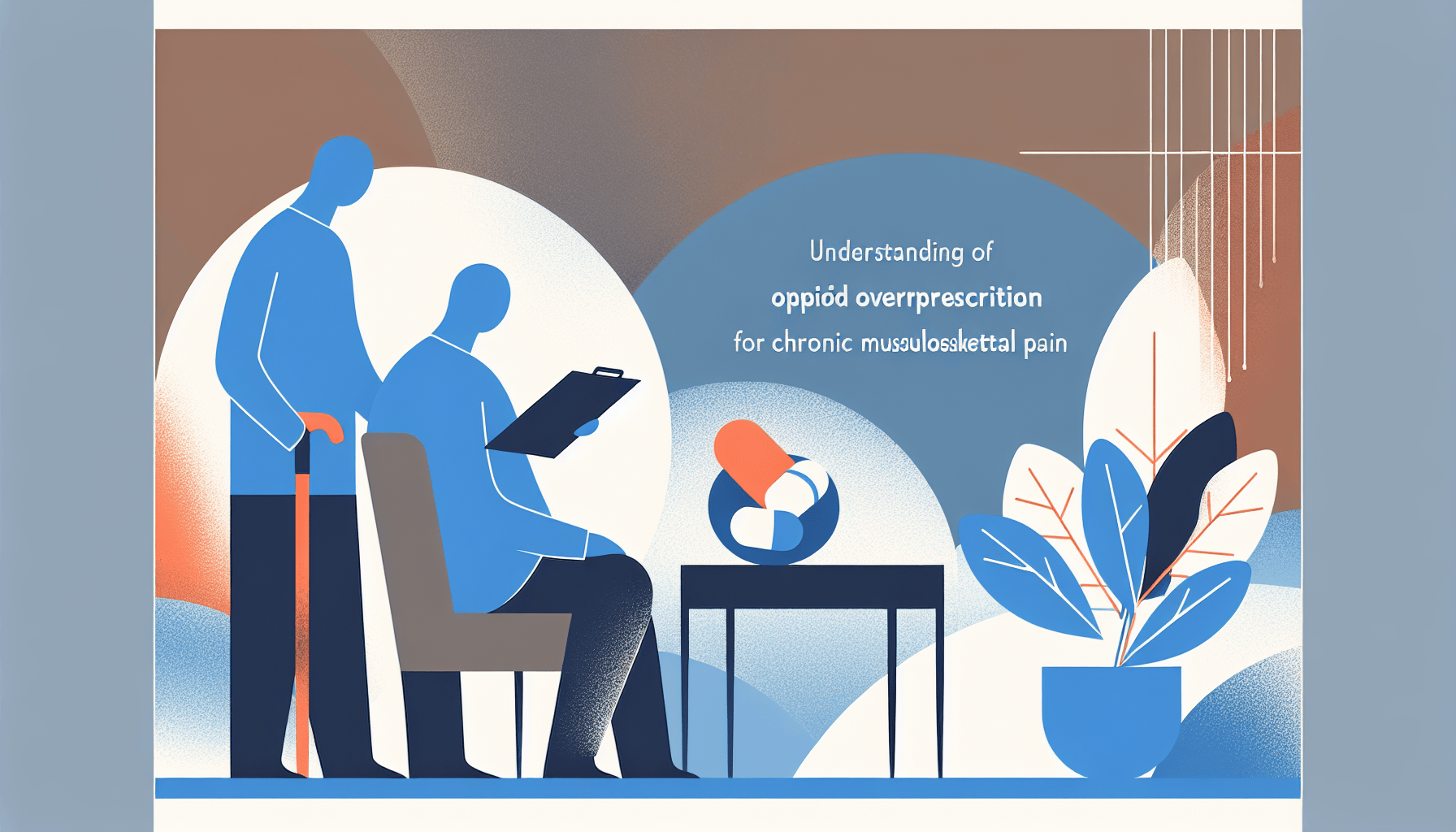Chronic musculoskeletal pain is a common condition that affects many people worldwide. Unfortunately, a study published in The Journal of Pain in December 2019 revealed that doctors have been overprescribing opioids for this type of pain, despite the known risks and the availability of safer alternatives.
The Study's Findings
Researchers analyzed data from a survey conducted between 2007 and 2015 and found that doctors more frequently prescribed pills, either non-opioid or opioid, rather than recommending other treatment options, such as:
At patients' first visits, doctors most often prescribed:
Non-opioid painkillers (40.2%)
Opioids (21.5%)
Counseling, nonpharmacological treatments, and physical therapy
Consequences of Opioid Overprescription
The overprescription of opioids can lead to several serious consequences, including:
The study's findings are particularly concerning because they directly contradict the recommendations of experts, including those outlined in the CDC Guideline for Prescribing Opioids for Chronic Pain.
Recommended Alternatives to Opioid Treatment
Instead of relying on opioids, experts recommend several alternative treatments for managing chronic musculoskeletal pain, such as:
Physical therapy
Counseling and behavioral therapy
Nondrug interventions (e.g., massage, acupuncture)
Non-opioid pain medications (e.g., acetaminophen, NSAIDs)
Creams/gels with pain meds and cannabis formulations can help with pain
The Need for Education and Awareness
The study authors emphasize the need for improved education among healthcare providers to ensure that patients receive the most appropriate and effective treatments for chronic musculoskeletal pain. It is important to note that the study period (2007-2015) preceded much of the recent work and advocacy aimed at reducing opioid prescriptions, so the situation may have improved since then.
By raising awareness about the risks of opioid overprescription and promoting safer alternatives, we can work towards better pain management and improved patient outcomes. If you are experiencing chronic musculoskeletal pain, talk to your doctor about the most appropriate treatment options for your individual needs and preferences.
The Bottom Line
Most chronic muscle and joint pain responds better to non-opioid treatments that don't carry addiction risks, yet many providers still prescribe opioids inappropriately at first visits. If you're concerned about your pain management approach or want to explore safer alternatives, Doctronic can help you understand your options quickly.



